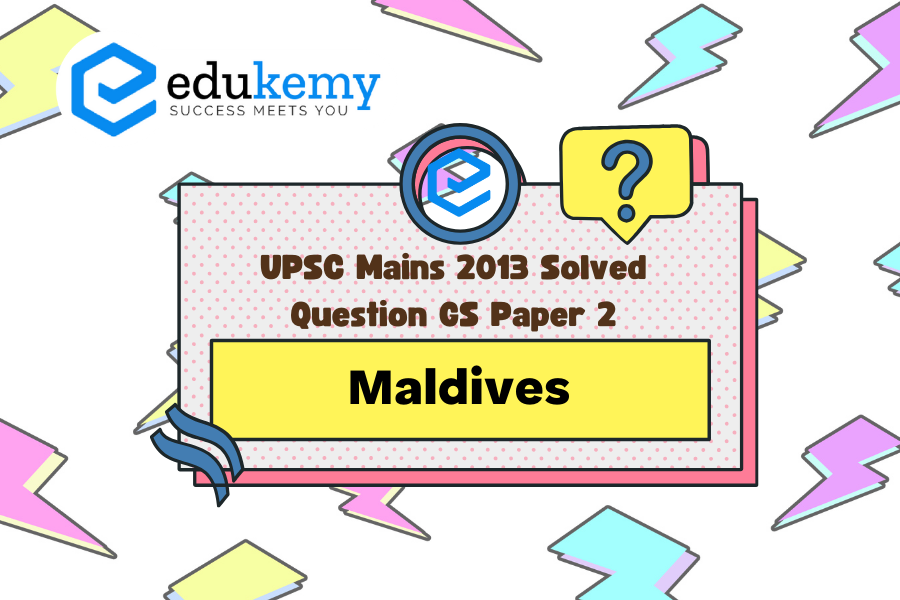Over the past two years, the Maldives has witnessed significant political developments that have garnered attention both regionally and internationally. Since the controversial presidential elections of 2018, which saw Ibrahim Mohamed Solih emerge victorious, there have been notable shifts in the political landscape. Solih’s administration has made efforts to restore democratic institutions and improve relations with foreign powers, including India. However, challenges persist, particularly concerning political stability, governance issues, and external influences. The Maldives’ strategic location in the Indian Ocean has heightened concerns, especially for neighboring countries like India, regarding regional security and geopolitical interests. Tensions have occasionally surfaced due to China’s growing presence in the Maldives, raising apprehensions in New Delhi about Beijing’s expanding influence in its immediate neighborhood. Additionally, internal political dynamics, such as power struggles and factionalism, have added to the complexity of the situation. While India maintains a keen interest in ensuring stability and democratic progress in the Maldives, the evolving political landscape poses challenges that necessitate a nuanced approach. Assessing these developments and their implications for regional dynamics remains crucial for India in safeguarding its interests and maintaining stability in the Indian Ocean region.
Tag: India and its neighbourhood- relations covering sub-topics such as historic relations, Indian initiatives in neighbourhood countries and vice versa, challenges and solutions, etc.
Contents
Decoding the Question:
- In the Introduction, try to write about India- Maldives historical background.
- In Body,
- Discuss political development in the Maldives in the last two years.
- Discuss how it is the cause of concern for India.
- Try to conclude, by writing importance of Maldives for India.
Answer:
India and Maldives share ethnic, linguistic, cultural, religious, and commercial links steeped in antiquity and enjoy close, cordial, and multi-dimensional relations. India was among the first to recognize the Maldives after its independence in 1965 and to establish diplomatic relations with the country. India established its mission in 1972 and resident High Commissioner in 1980. The Maldives opened a full-fledged High Commission in New Delhi in November 2004, at that time one of its only four diplomatic missions worldwide.
Recent Political Developments:
- The Maldives is in transition democracy as it had started its journey as a democratic nation in 2008 when 30 years of autocratic rule ended, and President Gayoom presented a new Constitution, which paved the way for the multi-party election for the first time in the island nation. The new constitution of Maldives introduced some institutional changes such as judicial independence, presidential powers, and parliamentary elections, etc.
- Mohammed Nashid’s reign was also controversial when he gave a contract to Indian company GMR without permission of Parliament, curb on government institution, arrest of criminal judge, and after all these episodes, he had resigned. But there was widespread resentment against Nashid’s resignation, and Nashid claimed that he was deposed by a military-led coup against him.
- In 2013 election was conducted, but none of the candidates, Mohhamed Nashid and Abdullah Yameen did not secure a majority. The second round of the election was conducted after some time, and Yameen secured a majority in that and became president.
- In 2015 ahead of a mass support rally for Nashid, the Government announced a state of emergency in the country and arrested Nashid. The reign of Abdulla Yameen was very controversial and was considered pro-China, which was against India’s interest. The overall political instability in the Maldives had a negative impact on India.
Cause of Concern for India:
- Strategic Implication: the Maldives has a very significant place in Indian Ocean Region and is situated on important sea-lanes of communication. China has been investing a lot in the Maldives to secure Its security and economic interest in the region. This has led to China coming very close to India in IOR, which may have serious security implications.
- Anti-democratic move: Anti-democratic move has another significant blow to India’s interest, as communist China is always looking to influence the government and people of Maldives. Democratic setup is the base and one of the threads which kept India- Maldives relations alive.
- Economic implication: India has been investing a lot in the Maldives, such as carrying out various community impact programs, infrastructure development programs, etc. This political instability led to insecurity among Indian investors.
- India’s Interest: The Maldives has been key in regional security and peace. It has always supported India for a permanent seat in the United Nations Security Council, Supported India on Kashmir Issues, forefront in the fight against terrorism. Hence political stability in the Maldives is in India’s favor.
- The threat of ISIS: Islamic State is a terrorist organization that is always in search of an opportunity where nations are politically unstable. The unstable Maldives will give fertile ground for terrorist activities. This is not in favor of India’s national security.
The Maldives has a very significant place in India’s foreign policy, and it is part of Neighbourhood first and Gujral Doctrine. Its significance has been underlined in India by every government that comes into power. Stable, secure, and prosperous Maldives is in India’s favor and counterbalances China in the Indian Ocean Region.
In case you still have your doubts, contact us on 9811333901.
For UPSC Prelims Resources, Click here
For Daily Updates and Study Material:
Join our Telegram Channel – Edukemy for IAS
- 1. Learn through Videos – here
- 2. Be Exam Ready by Practicing Daily MCQs – here
- 3. Daily Newsletter – Get all your Current Affairs Covered – here
- 4. Mains Answer Writing Practice – here


